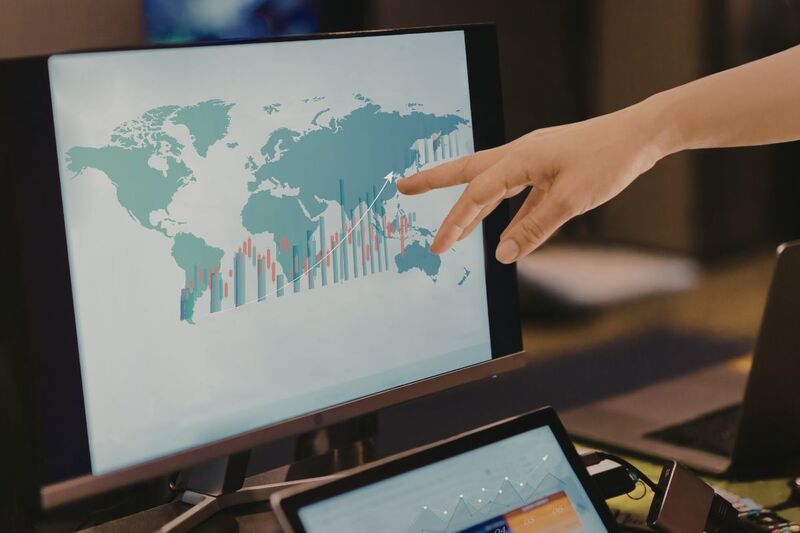The Top 20 Jobs Unlikely to be Replaced by AI In Singapore
With the rapid advancement of artificial intelligence (AI), many workers and companies are concerned about the potential impact on employment. However, while AI will undoubtedly transform certain jobs, it is essential to recognize that it will also create new opportunities and demand for specific roles. In this article, we explore the top 20 jobs that are unlikely to be replaced by AI and provide insights on how companies and workers in Singapore can prepare for this evolving landscape.
1. Healthcare Practitioners and Technical Staff
AI can assist in diagnostics and data analysis, but the human touch in patient care remains irreplaceable. Jobs like doctors, nurses, and medical technologists require empathy, critical thinking, and hands-on skills that AI cannot replicate.
2. Teachers and Educators
Teaching is not just about imparting knowledge but also about fostering relationships and providing emotional support. Educators who can adapt and integrate AI tools into their teaching methods will thrive.
3. Social Workers and Counsellors
Roles that involve human empathy, such as social workers and counsellors, are difficult for AI to replace. These jobs require understanding, compassion, and interpersonal skills.
4. Creative Professionals (Writers, Artists, Musicians)
While AI can generate content, it lacks the originality, creativity, and emotional depth that human artists bring to their work. Creative professions will continue to flourish with the integration of AI as a tool rather than a replacement.
5. Human Resource Managers
HR managers play a crucial role in understanding and managing workplace dynamics, culture, and employee relations. The human aspect of these roles cannot be automated.
6. Healthcare Support Occupations
Jobs like physical therapists and occupational therapists involve personalised care and physical interaction, making them less susceptible to AI replacement.
7. Sales and Marketing Managers
Strategic thinking, creativity, and relationship-building are core to sales and marketing roles. AI can aid in data analysis, but human intuition and creativity remain paramount.
8. Legal Professionals
Legal work involving complex decision-making, client interactions, and courtroom presence is unlikely to be fully automated. AI can assist with research and document review, but lawyers will still play a critical role.
9. Public Relations Specialists
Crafting compelling narratives and managing public perception requires creativity and emotional intelligence, skills that AI lacks.
10. Event Planners
Event planning involves creativity, problem-solving, and personal interaction. While AI can help with logistics, the human touch in organising and managing events is irreplaceable.
11. Engineers and Architects
Engineering and architecture require innovation, problem-solving, and complex decision-making. AI can assist with design and simulations, but the creative aspect remains human-driven.
12. Financial Advisors
Personalised financial planning and trust-building with clients are core aspects of financial advisory roles. AI can assist with data analysis, but human advisors will still be needed.
13. Clergy and Religious Workers
Spiritual guidance, counselling, and community leadership are deeply human activities that AI cannot replicate.
14. Psychologists and Psychiatrists
Mental health professionals require empathy, intuition, and complex understanding of human behaviour, making these roles less likely to be automated.
15. Chefs and Cooks
Culinary arts involve creativity, taste, and presentation that AI cannot fully replicate. Chefs who embrace technology for efficiency while maintaining their unique culinary skills will thrive.
16. Sports Coaches and Fitness Trainers
Coaching and training involve personalised guidance, motivation, and understanding of individual needs, which are difficult for AI to replicate.
17. Craftsmen and Artisans
Jobs that involve unique craftsmanship, such as carpentry and jewellery making, require creativity and hands-on skills that AI cannot easily replace.
18. Journalists and Reporters
Investigative journalism, storytelling, and building trust with sources require human intuition and creativity, which AI lacks.
19. Therapists and Rehabilitation Specialists
Personalised care and physical interaction are core to these roles, making them resistant to automation.
20. Environmental Scientists and Conservationists
Fieldwork, research, and advocacy for environmental conservation require human judgement and passion, making these roles less likely to be replaced by AI.
Preparing for the Future: Strategies for Companies and Workers in Singapore
1. Upskilling and Reskilling
Workers should focus on acquiring skills that complement AI. For instance, while AI can handle data analysis, workers can enhance their roles by learning to interpret and apply insights from AI-generated data. SkillsFuture Singapore provides numerous resources and courses to help workers upskill in areas like data analytics, AI applications, and digital marketing.
2. Embracing Lifelong Learning
The rapid pace of technological change necessitates continuous learning. Companies should foster a culture of lifelong learning and provide opportunities for employees to upgrade their skills regularly.
3. Fostering Soft Skills
Soft skills such as communication, collaboration, creativity, and emotional intelligence will become increasingly important. Employers should prioritise these skills in their hiring and training programs.
4. Collaborating with AI
Rather than viewing AI as a threat, workers should learn to collaborate with AI tools to enhance their productivity and job performance. This includes understanding how to use AI for data analysis, customer insights, and process optimization.
5. Government Support
The Singapore government is investing significantly in AI infrastructure and talent development. Initiatives like the National AI Strategy 2.0 and the TechSkills Accelerator (TeSA) aim to equip workers with the necessary skills to thrive in an AI-enhanced economy.
6. Focusing on Human-Centric Roles
Roles that require human interaction, creativity, and empathy are less likely to be automated. Workers should consider careers that leverage these uniquely human qualities.
Conclusion
While AI will undoubtedly transform the job landscape, many roles will continue to require the unique capabilities of human workers. By focusing on upskilling, embracing lifelong learning, and fostering soft skills, workers and companies in Singapore can prepare for a future where humans and AI collaborate to create a more efficient and innovative workforce.
By staying informed and proactive, Singapore's workforce can harness the power of AI to enhance their careers and contribute to a dynamic, future-ready economy.
Seeking Your Next Career Opportunity?
Submit your CV — Our trusted Career Consultants will review your resume and contact you if we find a position that matches your profile!
OR
Looking to Hire?
Please fill in this Inquiry Form — our Recruitment Consultants will be in touch with you soon!
Disclaimer:
The information provided in our blog articles is intended for general informational purposes only. It is not a substitute for professional advice and should not be relied upon as such.
While we strive to provide accurate and up-to-date information, the ever-evolving nature of certain topics may result in content becoming outdated or inaccurate over time. Therefore, we recommend consulting with qualified professionals or experts in the respective fields for specific advice or guidance. Any actions taken based on the information contained in our blog articles are solely at the reader's discretion and risk. We do not assume any responsibility or liability for any loss, damage, or adverse consequences incurred as a result of such actions.
We may occasionally provide links to external websites or resources for further information or reference. These links are provided for convenience and do not imply endorsement or responsibility for the content or accuracy of these external sources. Our blog articles may also include personal opinions, views, or interpretations of the authors, which do not necessarily reflect the views of our organisation as a whole. We encourage readers to verify the accuracy and relevance of information presented in our blog articles and to seek professional advice when needed.
Your use of this website and its content constitutes acceptance of this disclaimer.
Sources:
https://futurecio.tech/70-of-sg-workers-say-ai-will-impact-jobs/
https://whatsthebigdata.com/ai-replacing-jobs-statistics/
https://www.weforum.org/agenda/2023/05/jobs-ai-cant-replace/
https://www.pwc.com/hu/hu/sajtoszoba/assets/ai_jobs_barometer_2024.pdf
https://www.straitstimes.com/singapore/ai-will-not-replace-you-but-it-may-well-change-your-job
Sandra Davie, "AI will not replace you, but it may well change your job," The Straits Times, March 12, 2024.
Gil Press, "What Percent of Jobs Will Be Replaced by AI – Statistics 2024," April 29, 2024.
Salesforce Survey, May 18, 2023.
McKinsey Global Institute Report, 2023.
Statista, "Change or replacement of jobs by Artificial Intelligence worldwide from 2023 to 2028."






